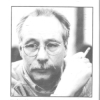W. G. Sebald

W. G. Sebald
Winfried Georg Sebald— known as W.G. Sebald or Max Sebald — was a German writer and academic. At the time of his death at the age of 57, he was being cited by many literary critics as one of the greatest living authors and had been tipped as a possible future winner of the Nobel Prize in Literature. In a 2007 interview, Horace Engdahl, former secretary of the Swedish Academy, mentioned Sebald, Ryszard Kapuściński and Jacques Derrida as three recently...
NationalityGerman
ProfessionWriter
Date of Birth18 May 1944
CountryGermany
A tight structural form opens possibilities. Take a pattern, an established model or sub-genre, and write to it. In writing, limitation gives freedom
As far as I know, the question of whether and how it could be strategically or morally justified was never the subject of open debate in Germany after 1945, no doubt mainly because a nation which had murdered and worked to death millions of people in its camps could hardly call on the victorious powers to explain the military and political logic that dictated the destruction of the German cities.
Physicists now say there is no such thing as time: everything co-exists. Chronology is entirely artificial and essentially determined by emotion. Contiguity suggests layers of things, the past and present somehow coalescing or co-existing.
And so they are ever returning to us, the dead.
A wonderful story collection set between one place and another and shaped by a fearless sense of comedy.
The seasons and the years came and went...and always...one was, as the crow flies, about 2,000 km away - but from where? - and day by day hour by hour, with every beat of the pulse, one lost more and more of one's qualities, became less comprehensible to oneself, increasingly abstract.
No one can explain exactly what happens within us when the doors behind which our childhood terrors lurk are flung open.
It makes one’s head heavy and giddy, as if one were not looking back down the receding perspectives of time but rather down on the earth from a great height, from one of those towers whose tops are lost to view in the clouds
To set one's name to a work gives no one a title to be remembered, for who knows how many of the best of men have gone without a trace? The iniquity of oblivion blindly scatters her poppyseed and when wretchedness falls upon us one summer's day like snow, all we wish for is to be forgotten.
We learn from history as much as a rabbit learns from an experiment that's performed upon it.
The more images I gathered from the past, I said, the more unlikely it seemed to me that the past had actually happened in this or that way, for nothing about it could be called normal: most of it was absurd, and if not absurd, then appalling.
There is something peculiarly dispriting about the emptiness that wells up when, in a strange city, one dials the same telephone numbers in vain.
And so they are ever returning to us, the dead. At times they come back from the ice more than seven decades later and are found at the edge of the moraine, a few polished bones and a pair of hobnailed boots.
At the most we gaze at it in wonder, a kind of wonder which in itself is a form of dawning horror, for somehow we know by instinct that outsize buildings cast the shadow of their own destruction before them, and are designed from the first with an eye to their later existence as ruins.